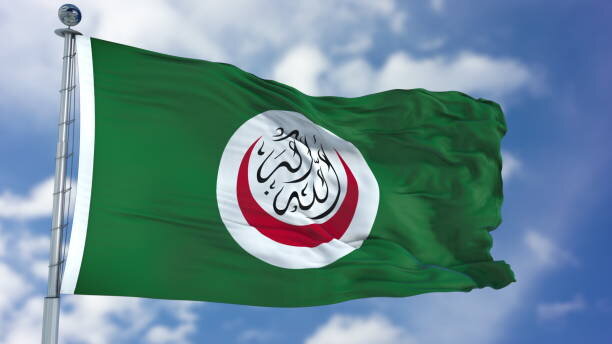Afghanistan: OIC emerging dilemma

TEHRAN - December 19, 2021, is going to be a monumental day for Afghanistan in its perilous situation. Pakistan on that particular day will host a meeting of the Organization of Islamic Cooperation (OIC) foreign ministers on Afghanistan aimed at addressing exacerbating and egregious humanitarian crisis in war-torn Afghanistan.
Shah Mahmood Qureshi, Pakistan’s foreign minister says, "In addition to the members of the OIC, the United States, Russia, China, Britain, the European Union, the World Bank and representatives of UN-affiliated aid agencies will be invited." Qureshi further reiterated that the objective of holding the conference was to draw the international community’s attention to the growing humanitarian crisis, that was neither in the interest of Afghanistan nor the world.
Pakistan has also invited the Taliban to the OIC summit with the aim of accepting the Taliban legitimacy. Meanwhile, the head of the Center for Strategic Studies at the Ministry of Foreign Affairs of Afghanistan, Waliullah Shaheen, maintains that "the economy, banking system and normalization of Afghanistan's relations with the world are the agenda items of the meeting, and we, as the foreign ministry (of Afghanistan), will participate in this meeting."
However, a few pertinent queries are being awaited to be answered. Will the OIC conference make headway in the recognition of the Taliban regime? What roadmap do they have to prevent the humanitarian crisis and economic woes of Afghanistan? How will the OIC support the Taliban to cope with the imminent threats of ISIS-K and other terrorist groups? Is the Muslim Ummah serious to nib their differences in the bud over the glaring situation of Afghanistan? Realistically speaking, the first and foremost dilemma to be faced by the OIC summit would be the recognition of the Taliban. It would certainly be a naïve approach to expect non-Muslim countries to recognize the Taliban government. The OIC ought to break the ice in recognition of the Taliban government.
Growing critics on the OIC say that Muslim Ummah is a vague concept; it has been unsuccessful in resolving the Kashmir issue, Palestine issue and Rohingya Muslim genocide. The failures of OIC are countless. However, December 19 summit is a ray of hope for the OIC to revive itself after innumerable failures. Afghanistan, arguably, is a great opportunity for the OIC to set a momentous precedent for humanity. Today humanity in Afghanistan is dying, the country is mired by many hardships, nearly half of Afghanistan's population will suffer from food shortages. About 3.2 million children may be malnourished. And 14 million Afghans are living below the poverty line, the country has a feeble and fragile economy largely based on foreign aid, with frozen nearly USD 9.5 billion assets. These are some serious problems requiring deep introspection by the OIC.
The history of Afghanistan is replete with several wars; the country remained a theatre of war among global and regional players, it once again is heading towards a new battlefield. ISIS-K in the current arena poses a serious challenge to the Taliban. With a weak economy, the inexperienced and unskilled Taliban would confront the growing threat of ISIS-K. In order to cope with ISIS-K, the Taliban deployed nearly 1,300 fighters to the eastern Afghan province of Nangahar, where ISIS-K is believed to be an operational hub.
Unlike other militant outfits in Afghanistan, ISIS-K has ideological differences with the Taliban. It has intensified its activities and operations in Afghanistan, the heartland province of Kandahar including in the capital Kabul. The matter of grave concern for the Taliban has been fresh recruits in the ISIS-K, from the Taliban having political differences with its leadership including the previous members of the U.S.-trained Afghan security forces. It has been confirmed to the Wall Street Journal by the Taliban leaders that ISIS-K’s numbers and strengths are accelerating posing a grave security threat to the country.
ISIS-K’s increasing attacks challenge the Taliban’s credibility, doubt the Taliban slogan of providing “peace and security” after the U.S. war. Deborah Lyons, the United Nations Secretary General’s Special Representative to Afghanistan articulates that ISIS-K was “once limited to a few provinces and Kabul” it “now seems to be present in nearly all provinces and increasingly active.” The celebration of Al-Qaeda and its affiliates including Al Shabab in Somalia, Al Qaeda in the Indian Subcontinent, and the Sahel-based and the Sahel-based Jamaat Nusrat al-Islam wal-Muslimin JNIM is likely to engulf the region in imminent waves of terrorism and extremism.
It seems to be an uphill task for both the Taliban and the OIC to address the imminent threats of terrorism and extremism in the region. Non-recognition of the Taliban government, cessation of foreign aid, economic collapse, humanitarian crisis, and the rise of ISIS-K’s pose an existential threat to the Taliban regime.
The history of international politics teaches us that world politics is driven by realpolitik. Realpolitik is politics based on power and material factors that negate the ideological and religious notion. If the OIC is ambitious to make history, it needs to address its differences, ought to be least concerned about its geo-political and geo-economic dividends in the rebuilding of war-torn Afghanistan, and must support Afghanistan, politically, economically, and diplomatically.
Dost Muhammad Barrech is a Research Associate at the India Study Centre of the Institute of Strategic Studies Islamabad (ISSI). He is also PhD (IR) candidate at International Islamic University Islamabad (IIUI).
(The views expressed in this article do not necessarily reflect those of Tehran Times.)
